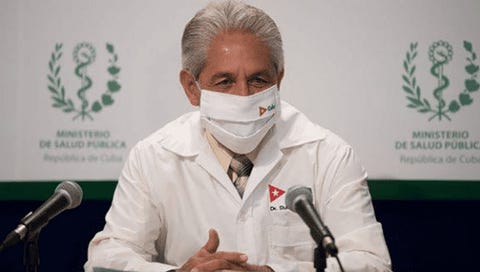In 2020, Cuba had the coronavirus contained, applying a comprehensive plan formulated by a team of government leaders and scientists; a plan explained to the people. There were two peaks of cases, the first in April, and the second higher peak in August, both low by global standards. Cuba, along with other states constructing socialism and along with some East Asian, African, and Caribbean nations, had one of the lowest rates of contagion and lowest death rates in the world.
The 2021 Third Peak
The opening of international tourism in October 2020 stimulated a third peak of cases, far higher than the two peaks of 2020. The plan of control was theoretically correct. All international travelers, Cuban and foreign, were to be tested upon their arrival in Cuba, and they would be informed of the results in two days. They then would have a second test, to be informed of the results in two days. If negative in these two test results, they would be freed from isolation.
Th…



